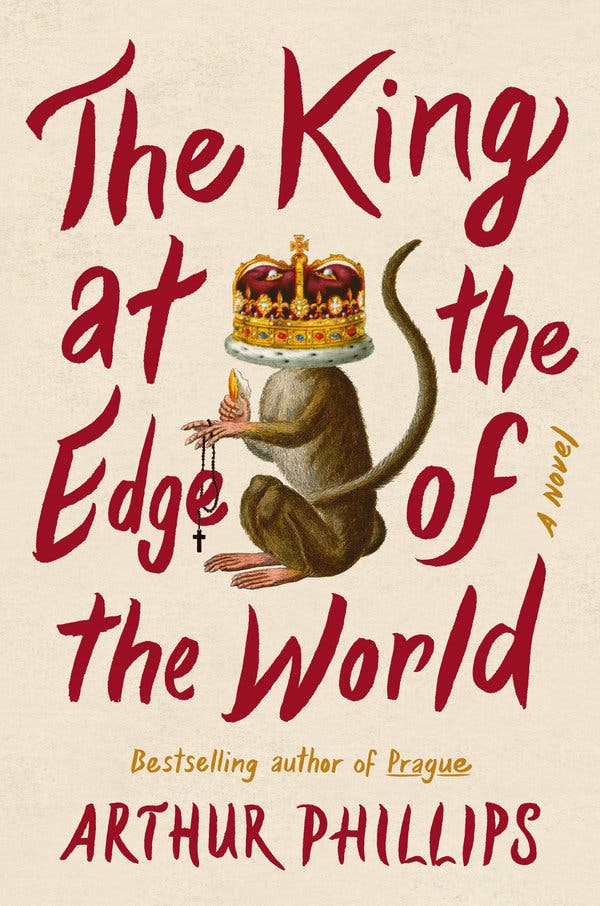[ Read an excerpt from “The King at the Edge of the World.” ]
Elizabeth I’s strategy was driven by expediency. Having been excommunicated by Pope Pius V, and out of step with Catholic Europe, she needed allies. In writing to Sultan Murad III, Elizabeth drew parallels between Protestantism and Islam. Both abhorred idolatry and intercession, and both relied on their books, the Bible and the Quran, for direct contact with God. The Sultan replied issuing a new law for his subjects that if Elizabeth’s “agents and merchants shall come from the domain of Anletar [Angleterre] by sea with their barks and with their ships, let no one interfere.” Elizabeth pressed further east than the Ottomans and dealt directly with the Safavid Empire in what is now Iran. If the Reformation can be classed as Britain’s first Brexit, then as now, having cut ourselves off from Europe, we urgently needed to forge alliances elsewhere.

The policy had been formulated by Elizabeth’s spymaster, Sir Francis Walsingham, and it soon reached a breathtaking level of pragmatic realpolitik. The newly formed Levant Company began an illegal trade shipping old tin and lead, stripped from deconsecrated churches and monasteries, to the Ottomans to reforge as armaments. Old church bells became cannons and shells, used to bombard Christian armies. Even Oliver North might have balked at that. It goes to show that the British have never been off the pace in terms of geopolitical cynicism.
“The King at the Edge of the World” looks through the other end of the lens, and sees first England and then Scotland from the viewpoint of a displaced hero from Constantinople. Mahmoud Ezzedine, a Muslim physician and an endlessly forbearing man of sweet goodness, rapidly becomes the innocent victim of these diplomatic exchanges. His downward-spiraling life is a series of incidents in which he is exploited as a pawn in a game of international political chess. He is tricked into joining a delegation to London by a courtier who has eyes for his wife. He is stranded there when he is gifted by his country’s ambassador to Elizabeth. He is further isolated when he is passed on to provide care for an epileptic nobleman in a bleak outpost of Cumberland. And, finally, he is lost at the very end of the world when he is sent on to Edinburgh, to inveigle his way into the affections of the Scottish King James VI, poised to become the English King James I upon Elizabeth’s death. An essentially tender and passive man, Ezzedine finds sustenance in his Islamic faith as his dignity is stripped away.
Phillips, the author of the acclaimed novel “Prague,” is at pains to remind us of the superiority of Asia, sometimes to a fault. His principal character is so full of yearning for his lost Constantinople, and so committed to reminding us of the relative backwardness of the British Isles, that one begins to question his lack of intellectual curiosity. It is possible to comprehend his despair at being lost in the rugged wilds of the northeast, but it seems rum that a mind as fine as Ezzedine’s can take no pleasure in the London theater of his day, the wit of its court or its fledgling struggles toward the scientific mentality. He enjoys the company of Elizabeth’s resident eccentric magus, Dr. John Dee, and they swap herbal medicinal cures, but it seems overly tentative not to move beyond Dee to Francis Bacon, or to have Ezzedine read Christopher Marlowe, or listen to Lancelot Andrewes preach.
Despite this narrowness of vision, the book is a delightfully rich fruitcake and an old-fashioned pleasure to read; its plot is an intricate set of intersecting mechanisms and locks and keys, which, when they finally all fall into place, provide the reader with the gawping satisfaction of having been well and truly fooled. And then fooled again. That conjurer’s panache of a reveal is achieved through cleverly withheld information, alluring blind alleys and pungent red herrings. Sentence by sentence, the book blends the leanness of a taut thriller with the marbled fatness of Elizabethan prose. Combining those two is quite the juggling act.
 EU News Digest Latest News & Updates
EU News Digest Latest News & Updates



